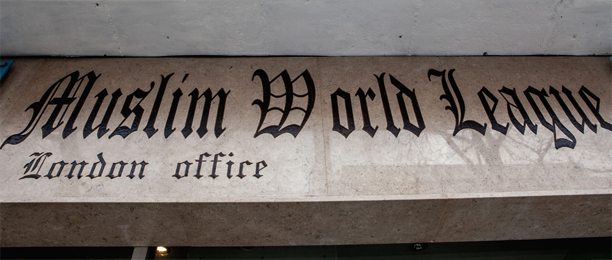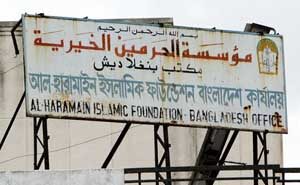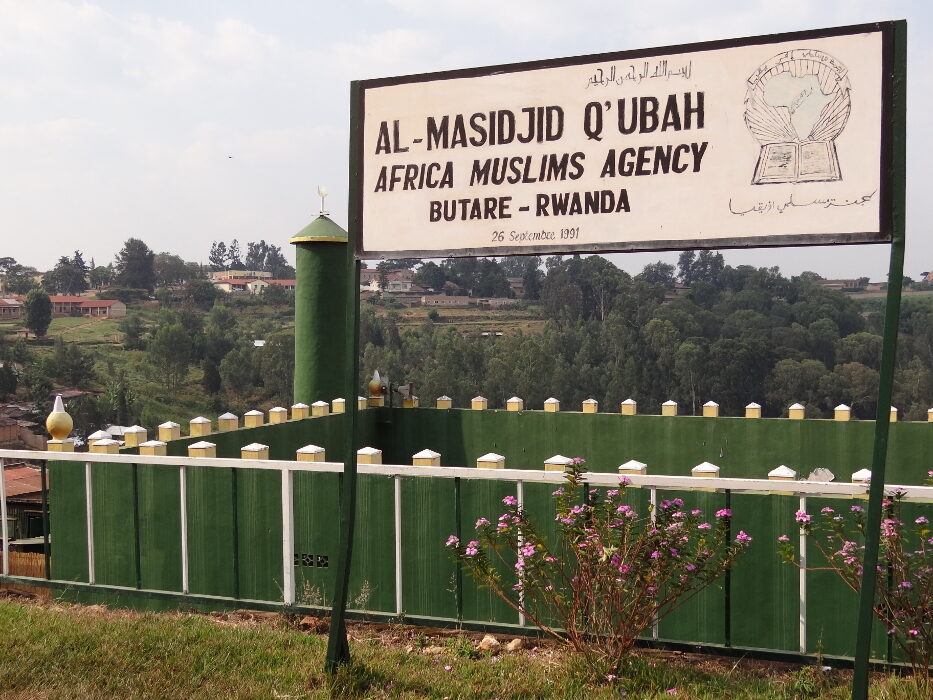ISLAMIC NON-GOVERNMENTAL ORGANIZATIONS AND THE SPREAD OF TERRORISM

Islam doesn’t have a Pope, a command structure, an authority helping worshippers to interpret the sacred books and providing their appropriate meaning. This circumstance has provided a fertile ground for all those who want to twist the words of holy texts to justify terrorism in its bloodiest forms. The different theological schools – ranging from those literally and orthodoxly interpreting the Koran (like the Salafis) to the more moderate ones (such as the Sufis) – end up fueling radicalism.
But those currents preaching extremist religious concepts, that favor the move from religious radicalism to terrorism, need a tool to transmit and spread their ideas. We’re talking about structures capable of feeding radicalism, transforming it into extremism and then, closing the circle, capable of providing a harbor and financing for all those armed groups dedicated to Islamic forms of terrorism.
It is in such a context that we should analyze the role of Islamic Non Governmental Organizations (NGOs). They officially have a humanitarian scope, but the truth is, over the last decades, they have been the main tool for the spread of radical Islam not only in Muslim countries, but also in those developing nations where the financial support they have been able to provide has had a strong social impact. It is hence not surprising how Islamic terrorism has taken root in Africa and that behind the proliferation of radical stances Saudi NGOs, that is groups tied to an orthodox and radical muslim sect such as the Wahabis, have often been found.
The role of the NGOs
The role of these Islamic NGOs is therefore paramount because it brings along an antagonistic vision of the relationship with other creeds that goes as far as to conceive a an aggressive military approach. They are tasked with proselytism (seldom turning into recruitment tout court), they spread extremist ideas, they create an inferiority complex on those receiving support, aid or assistance. Wahabi NGOs have, in the recent past, provided recruitment, financing, logistical support and training to Afghan, Bosnian and lately Middle Eastern mujaheddin. One of the people using such NGOs is the world’s most famous Saudi Wahabi: Osama bin Laden.
There are several NGOs that are directly or indirectly linked to Saudi Arabia and, even though they might have not been involved in subversive activities, they are still responsible – willingly or not – of spreading an ideology and a religious approach that has fueled fanaticism in various parts of the globe that then turned into extremism and finally into terrorism.
The biggest paradox is that Saudi Arabia, apparently siding with the West in the fight against terrorism, is, at the same time, its main sponsor. We could debate over the fact that Saudi NGOs are generally private organizations and that they don’t necessarily involve the State they belong to in their activities, but, then again, such a distinction is arguable because of the Saudi monarchy’s links with the Wahabis and, therefore, of them sharing their same set of beliefs. On the other hand, throughout the Arabian Peninsula and in the Middle East governments are usually supportive of these charitable groups so long as they don’t affect their internal stability.

Controversial organizations
The fact is that over the years some of these Wahabi Non Governmental Organizations have been investigated or accused of being involved in terrorism.
• Muslim World League
Founded in Mecca in the 60s. Its main scope is the spread of Islam and the reunification of all those movements attempting to introduce Sharia law in their respective countries. This objective is pursued through the building of mosques, koranic schools, cultural centers and distribution of free (religious) textbooks. Following the 911 attacks on the Twin Towers their offices were searched by the FBI; one of its members, Abdul Rahman Alamoudi, was arrested for the financing of terrorist groups. The League is still active today and has offices across five continents.
• “Al Haramain” Foundation
It’s central office is in Riyadh. It’s main scope is the assistance of Islamic communities in the world. In the past, it has financed the mujaheddin in Afghanistan. The Foundation was thought to have played a role in the 1998 bombings of the US embassies in Nairobi and Dar es Salaam, they have also been heavily involved in Somalia as they had been in Bosnia in the support of the mujaheddin battalions fighting for the government in Sarajevo. They are accused of being in contact with the Egyptian Al Jamaat al Islamiyah. In September 2004 the Foundation was accused by the US Deparment of Treasury of being linked to Al Qaeda and to Osama bin Laden. It was then banned by the UN Security Council.
• “Al Mouwafaq” Foundation
Also based in Ryadh, it has offices in Europe and the Balkans. It’s main scope is to provide support to Muslim refugees throughout the world. In the recent past it was supporting Tunisian Islamic groups (while Ben Ali was in power and whom, once he was ousted, fled to Saudi Arabia). It has been accused of having ties to the Egyptian Al Jamaat al Islamiyah and of having provided financial support to a battalion of Egyptian mujaheddin fighting in Bosnia who bore the name Mouwafaq Brigade. Similarly, the supported training camps in Afghanistan. Its Monaco, Germany, office was suspected of being linked to Al Qaeda. In October 2001 the United States accused one of the main financiers of the Foundation, the Saudi multimillionaire Yassi al Qadi, of having financed terrorism, but no action was taken against the organization.
• Islamic Coordination Council
Founded in 1986, it has its main offices in Peshawar, Pakistan, and supports Afghan refugees thanks to private funds mainly coming from Saudi Arabia. This organization has also been suspected of being involved in terrorist activities.
• International Islamic Relief Organization (Hay’at al Ighatha al Islamiyah al Alamyah)
Founded in 1979, it is based in Jedda. It has offices in 90 countries. Before its foundation its tasks were carried out by the Department for World Islamic Aid, an organism belonging to the Muslim World League. Its main scope is to provide assistance to refugee orphans and victims of conflict. It does so by engaging a series of Islamic banks and financial organizations. This NGO’s name has often been associated to the support provided to several radical North-African groups, like the Islamic Jihad and the Al Jamaat al Islamiyah in Egypt, Ennahda in Tunisia (while Rachid Ghannouchi was in exile in London), the Algerian Islamic Salvation Front, Hamas, Osama bin Laden himself and the mujaheddin in Bosnia. One of its associates, Ramzi Ahmed Yousef, was involved in the 1993 attack against the World Trade Center in New York.

There’s more
Apart from private Wahabi NGOs, the Saudi government also has its own charity, the Saudi High Commission, that, even thought it has not pursued terrorism, has provided assistance to groups like Hamas or the Algerian FIS.
As far as Africa is concerned, another organization, the Africa Muslims Agency, is very active. Based in Kuwait, it is not linked to the Wahabis, but to the Muslim Brotherhood. It is present in 34 countries across Africa. Self-declared politically neutral, dedicated to the spread of the Dawah (Islamic message) and the development of religious teachings, it has often been considered an active tool for the spread of radical Muslim views in Africa. Several of its offices are on the Eastern shores of the continent and on the islands (Comoros, Zanzibar, Pemba, Lamu). In their research of the African people’s and communities’ muslim roots, the Agency has often clashed with authorities in several countries, like Gabon, Senegal, Zimbabwe and Cameroon. Presently, the Agency runs agricultural projects in Mali, provides assistance to the Tuareg, offers scholarships, assists orphans and builds mosques. It can rely on a lot of money and this helps it spread its ideology. The Africa Muslims Agency has been suspected of financing the Somali Al Ittihad al Islamiyah, the radical group that was the forefather of the current Al Qaeda affiliated al Shabaab and then lead by Sheikh Hassan Dahir Aweys.
Tweet
